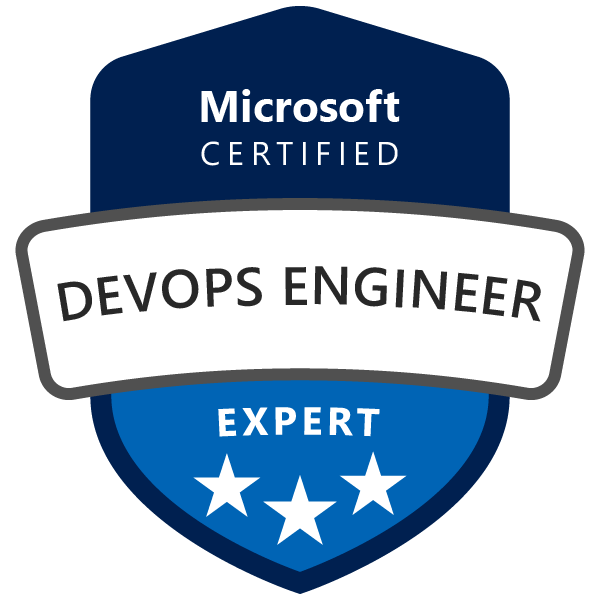Get IT Support Training for Your Career

In today's world, keeping up with technology is key to career growth. Getting essential skills in IT is a smart move.
The need for skilled IT workers is on the rise. This is because more and more people rely on digital tech. By focusing on IT career development, you can set yourself up for success in this field.
With the right training and certifications, you can open up new career paths. This helps you stay ahead in the job market.
Key Takeaways
Acquire essential IT skills to advance your career
Stay ahead of the curve in the rapidly evolving tech industry
Increase your earning potential with in-demand skills
Enhance your job prospects with relevant certifications
Position yourself for success in the growing IT field
The Growing Demand for IT Support Professionals
The IT support industry is booming, needing more skilled workers. Companies are using complex IT systems more than ever. They need experts to fix, keep, and upgrade these systems.
Current Industry Trends
Now, the industry is moving towards advanced tech like cloud computing and cybersecurity. This change means more jobs for IT support pros with specific skills.
Job Growth Statistics
Job stats look good for IT support careers. Data shows a big increase in jobs in this field over the next ten years.
Impact of Digital Transformation
Digital transformation has changed the IT support world a lot. As businesses go digital, they need more tech support experts.
Salary Expectations in IT Support
Salaries in IT support depend on experience and skills. But, they are usually pretty good.
Entry-Level Compensation
Starting jobs pay well, with chances to earn more as you gain experience and get more certifications.
Senior-Level Earning Potential
Top IT support pros, with special skills or certifications, earn a lot. Their high salaries show how valuable they are to companies.
Essential Skills for IT Support Careers
To do well in IT support, you need both technical and soft skills. IT support specialists have to fix many kinds of technical problems. They need a wide range of skills to do this well.
Technical Skills
Technical skills are the base of an IT support job. Important areas include:
Hardware Troubleshooting
Being able to find and fix hardware problems is key. You need to know about computer parts and other devices.
Operating Systems Knowledge
Knowing different operating systems is vital. This includes Windows, macOS, and Linux.
Networking Fundamentals
Understanding networking basics is important. This includes TCP/IP, DNS, and DHCP. It helps solve network and connectivity issues.
Soft Skills and Communication
IT support pros also need strong soft skills. These are:
Customer Service Abilities
Good customer service is crucial. You must talk well and understand users' needs.
Problem-Solving Approach
Having a good problem-solving method is key. It helps solve complex issues quickly.
By mixing technical skills with soft skills, IT support pros can offer top-notch service. They can really shine in their jobs.
Comprehensive IT Support Training Programs
IT support training programs vary to meet different learning needs. Whether you're new or want to improve, there's a program for you.
College Degrees in IT
Getting a college degree in IT is a solid choice. Associate and bachelor's degrees give a strong base in IT.
Associate Degrees
Associate degrees in IT take two years. They cover IT basics, networking, and hardware.
Bachelor's Programs
Bachelor's programs dive deeper. They include software development, cybersecurity, and data management.
Technical Schools and Community Colleges
Technical schools and community colleges focus on practical training. They offer flexible schedules for different lifestyles.
Bootcamps and Intensive Programs
Bootcamps and intensive programs are for hands-on learners. They are short and focused.
In-Person Options
In-person bootcamps offer direct interaction. This improves the learning experience.
Virtual Bootcamps
Virtual bootcamps are flexible. They're great for those with busy schedules or who prefer remote learning.
When picking an IT support training program, think about your learning style and goals. The right training prepares you for success in IT support.
Research different training programs to find the one that best fits your needs.
Consider the curriculum and ensure it covers essential IT support skills.
Look for programs with good reputations and positive reviews.
Top IT Support Certifications to Consider
Certifications in IT support boost your knowledge and career. As technology changes, the right certifications are key to career growth.
CompTIA Certifications
CompTIA has many certifications that are well-respected in IT. They are vendor-neutral, making them versatile and widely recognized.
A+ Certification
The A+ Certification is for beginners. It covers IT basics like hardware, software, and networking. It's a great start for new IT support professionals.
Network+ and Security+
Network+ and Security+ certifications build on A+. Network+ focuses on networking, while Security+ is about IT security. They're perfect for those who want to specialize.
Microsoft Certifications
Microsoft certifications show you know Microsoft products well. They're valuable, mainly in places that use Microsoft solutions.
Microsoft 365 Certified: Modern Desktop Administrator
This certification proves you can manage Microsoft 365 services. It's great for IT pros in Microsoft 365-using organizations.
Microsoft Certified: Azure Support Engineer
The Azure Support Engineer certification is for cloud computing. It shows you can support Azure services.
Google IT Support Professional Certificate
The Google IT Support Professional Certificate is a new but respected credential. It prepares you for entry-level IT support, focusing on practical skills.
Cisco Certifications
Cisco certifications are known for their challenge and relevance. They offer various certifications for different skill levels.
CCNA and CCNP
The CCNA (Cisco Certified Network Associate) is for beginners. It covers networking basics. The CCNP (Cisco Certified Network Professional) is for more advanced networking skills.
Getting these certifications can greatly improve your career. They help you stay ahead in the fast-changing IT field.
Self-Paced IT Support Training Options
Self-paced IT support training lets you learn new skills anytime, anywhere. This is great for those with busy lives. It's perfect for balancing work, school, and other duties.
Free Resources and Communities
There are many free resources for starting your IT support journey. Here are a few:
YouTube Tutorials and Channels: YouTube is full of IT tutorials. Techopedia and ITProTV are great for learning about IT.
Open-Source Learning Platforms: Sites like edX and Coursera have free courses from top schools. But, some might cost money for a certificate.
YouTube Tutorials and Channels
YouTube is a top spot for IT learning. Many channels focus on IT support training. Here are some favorites:
Techopedia: They explain IT topics in detail.
ITProTV: Offers in-depth IT training videos.
CBT Nuggets: Provides IT training videos on different technologies.
Open-Source Learning Platforms
Open-source learning platforms offer lots of courses and resources. Some top ones are:
edX: Has IT and computer science courses from top universities.
Coursera: Works with leading schools to offer IT courses.
Paid Courses and Subscriptions
If you want structured learning or need a certificate, paid courses are a good choice. Here are some popular ones:
Udemy and Coursera: These sites have many IT support courses. You can get certified after finishing.
LinkedIn Learning: Formerly Lynda.com, it has video courses on various IT topics.
Udemy and Coursera
Udemy has courses made by industry experts. Coursera partners with top universities for its courses.
LinkedIn Learning
LinkedIn Learning is great for IT pros. It offers video courses on topics like networking and cybersecurity.
IT Support Forums and Communities
Joining IT support forums and communities can be very helpful. Here are some good ones:
Reddit's r/IT: A place where IT pros share knowledge and stories.
Stack Overflow: Mainly for programming, but also has IT support insights.
Spiceworks: A community for IT pros to talk about IT topics.
Building Practical Experience
Practical experience is key for a successful IT support career. It's important to handle different technical issues and find effective solutions.
Internships and Entry-Level Positions
Internships and entry-level jobs are great for gaining experience. They let you work in real settings and learn important skills.
Help Desk Roles
Help desk roles are a good start for IT support careers. You'll talk to customers, fix problems, and offer technical help.
Technical Support Specialist Positions
Technical support specialist jobs require deeper technical work. You'll solve complex problems and work with teams to fix issues.
Creating Home Labs
Setting up home labs is another way to get practical experience. You create virtual and hardware setups to mimic real-world situations.
Virtual Environments
Virtual environments let you practice IT support skills safely. You can set up virtual machines and networks to test and fix technical setups.
Hardware Practice Setups
Working with physical devices like servers and computers is also valuable. It helps you understand how hardware works and how to fix problems.
Volunteer Opportunities
Volunteering is a great way to gain IT support experience. Nonprofits and community tech centers often need help, offering a chance to develop skills and help others.
Nonprofit Technical Support
Many nonprofits struggle with their IT. Helping them with technical support is a rewarding way to gain experience.
Community Technology Centers
Community tech centers offer tech access and training to those who need it. Volunteering there can help you gain IT support experience while making a difference.
Career Advancement Paths After IT Support Training
After getting IT support training, people can take on specialized roles or aim for leadership positions. The tech world is full of chances for growth, making it a thrilling place for careers to flourish.
Specialized Technical Roles
IT pros can dive into many technical fields, boosting their career chances. Some key roles include:
Network Administration: Managing and keeping computer networks running smoothly.
Systems Administration: Handling the daily tasks of computer systems.
Cybersecurity Positions: Safeguarding computer systems from cyber attacks.
Network Administration
Network admins play a key role in keeping an organization's network running well. They set up network devices, fix problems, and keep the network safe.
Systems Administration
Systems admins manage the daily tasks of computer systems. They install, update, and handle software and hardware.
Cybersecurity Positions
Cybersecurity experts protect computer systems and networks from threats. They watch for security breaches, set up defenses, and handle incidents.
Management and Leadership Positions
IT pros with experience can move into management and leadership. They lead teams and shape IT strategies.
IT Support Manager: Leading IT support teams and managing support operations.
IT Director: Overseeing the IT strategy and direction of an organization.
Continuing Education for Career Growth
Keeping up with education is key for IT career growth. Professionals can get more certifications, go to workshops, and take online courses. This helps them stay current with new tech and trends.
Launching Your IT Support Career Today
The demand for IT support professionals is growing fast. Now is a great time to start your career in this field. Getting the right IT support training will help you learn the skills you need.
Start by looking for a training program that teaches both technical and soft skills. Getting certifications like CompTIA A+ or Google IT Support Professional Certificate can also help you stand out.
It's important to get practical experience. Try internships, home labs, or volunteer work. This hands-on experience will make your resume stronger and more appealing to employers.
By following these steps and staying focused on your goals, you can start a successful IT career. It's a rewarding path in the IT support industry.
FAQ
What is the average salary for an IT support professional?
IT support salaries vary by location, experience, and certifications. The Bureau of Labor Statistics reports a median salary of about $53,000 for IT support specialists in May 2020.
What are the most in-demand IT support certifications?
Top IT support certifications include CompTIA A+, CompTIA Network+, and Microsoft Certified: Azure Support Engineer. Cisco CCNA is also popular. These show skills in hardware, networking, and cloud computing.
How long does it take to complete an IT support training program?
IT support training program lengths vary. Associate degrees take two years. Bootcamps and certifications can be finished in weeks to months.
What are the key skills required for a successful IT support career?
Essential skills include technical knowledge of hardware, operating systems, and networking. Soft skills like customer service, problem-solving, and communication are also crucial.
Can I pursue IT support training online?
Yes, online IT support training is available. You can find virtual bootcamps, online courses, and certification programs. Udemy, Coursera, and LinkedIn Learning offer many courses.
How can I gain practical experience in IT support?
Practical experience comes from internships, entry-level jobs, and home labs. Volunteer work and on-the-job training are also valuable. Many organizations offer mentorship programs.
What career advancement opportunities are available after completing IT support training?
After training, you can move into roles like network administration or cybersecurity. You can also aim for management positions like IT support manager or director.
Are there any free resources available for IT support training?
Yes, free resources include YouTube tutorials, open-source platforms, and online forums. These are great for starting your IT support training.






